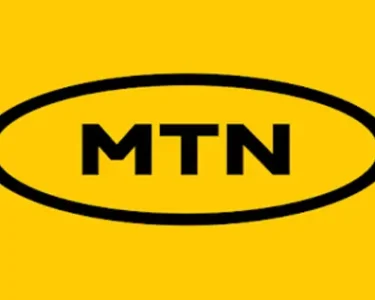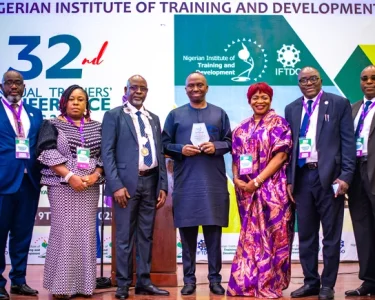A former staff based in the United Kingdom has dragged unicorn firm, Moniepoint to court over failed contract obligation demanding that his money worth over $889,000 be paid.
The Story..
When Damilola Ajiboye joined Moniepoint, formerly called TeamApt, with the promise of stock options after working for five years, he never expected that he’d be forced to sue the company for reneging on their promise.
Ten years after their first interaction, and three years after leaving the company, Ajiboye has dragged the fintech unicorn to court for maliciously trying to deny him of stock options estimated to be worth $889,600 in the secondary market.
How the Crisis Started
The year was 2015. It was convocation day at Covenant University (CU). The eagles of the Admirable Set had just been officially conferred with their first degrees. The grounds of CU were filled with the celebrants and different groups of well wishers (family, friends, students) who had come to take part in the wining and dining.
It was all joy and laughter but something was clear in the heart of the celebrants – the days of being an undergraduate are over, what next?
A bespectacled, studious youth, Damilola Ajiboye was among the first class graduates of
Computer Science that year. Even as the convocation week progressed with more jubilations and merriment, Ajiboye was introduced to Tosin Eniolorunda, a new founder who was looking to recruit exceptional talents to join his startup-Team Apt.
An interview date was set for July of the same year. It went well and work began the next day. Fresh out of uni, young, and with a job to resume to? Any smart-thinking person would grab such an offer, especially when it came with promises of training and a salary.
Ajiboye earnestly began working with the team while waiting to be mobilised for the National Youth Service Corp (NYSC). Four months after resuming, he was deployed outside Lagos. Team
Apt needed its engineers to be hands on at the office. So, he had to take a pause until 2016 when
he completed his service year and moved back to the Centre of Excellence.
At his return, the promise of stock options was made but he’d only get them after staying with Team Apt for five years. An agreement was drafted and a contract to stay with the company for five years was
signed by just the company, they said “it was a scheme rule signed only by the company and
then presented to employees.”
Commenting on why he took the offer despite this red flag, Ajiboye said, “It was a good incentive to stay that long. However, I had to complete five years to gain the stock option.”
At work, the young man was tasked with the role of designing the company’s Point of Sale application. He’d go on to work long hours, sleepless nights and cramped weekends. All the while, writing codes and engineering the product that’ll revolutionalise the way Nigeria’s unbanked population receive and send money. 2019 rolled around and the company had made a name for itself in POS development and maintenance.
Then the promise was formalised and Ajiboye got an offer of 3.2 million TeamApt Executive Stock Option Scheme (ESOS) units. This was equivalent to 32,000 Executive Stock Options and managed by Stanbic IBTC Trustees.
In April 2021, he successfully exercised and sold 4,200 units during an exit opportunity and all
seemed to be well. Alas, liquidating the rest of his 27,800 assigned units will not go as smoothly
as expected.
Here’s where it got interesting…
Having completed his five-year tenure at the company, Ajiboye submitted his resignation letter
in December 2021, with his exit scheduled to take effect on January 9, 2022. This move however, rattled the CEO who wasn’t exactly pleased with the young man’s decision to leave and take up new interests.
According to Ajiboye, he had even tried to resign a year earlier before the completion of the tenure but Eniolorunda convinced him to stay.
His words, “I think the CEO was unhappy when I resigned. I had planned to leave in 2020 after four years, but he persuaded me to stay an extra year, highlighting the share options as an incentive. I stayed. The only explanation of how the vesting process would work was offered by Tosin.
He said the shares were being held in a trust and would be transferred to me upon vesting;
no exercising needed or involved.”
On January 8, 2022, exactly one day before his final day at work, Ajiboye sent an email to Moniepoint about his vested shares and got crickets… no response, no explanation, and most definitely, no apology.
Then 85 days after his resignation, April 4, 2022, he got an email from Carta stating that his grant had arrived. Confused, Ajiboye probed and realised that following a corporate restructuring, Moniepoint had adopted a new stock option management platform.
This new platform gave Ajiboye a three-month window, from January 9, 2022 (when he resigned) to
April 9, 2022, to exercise his options. However, Ajiboye only received the login details on April
4, 2022, five days before the deadline.
Stupefied by the ridiculously short time left to exercise the stock option, Ajiboye reached out to a
company executive, Felix Ike, and he assured him that official correspondence would follow and
the window would be revised to a two-year option to finalise the process of exercising his vested
shares.
Trusting Ike’s words, Ajiboye accepted the grant via email from Carta on April 6, 2022. A few months later, an offhanded check showed that his rights to exercise the stock options had expired. Another support email from Carta confirmed the termination of the stock options.
Again, Ajiboye followed up with Ike who claimed that “this must be a mistake. I don’t think Carta has been updated with the new clause.” Come February 2023, the estranged engineer met with the co-founders for a brief meeting to proffer a solution to the problem.
Guess what they said to Ajiboye? “Come work another five years to get the shares back.” If this isn’t the height of ridiculousity, then Moniepoint surely has some clearing out to do.
The timeframe to exercise the stock option, clearly, was the root of the issue in 2022. And now, in 2025, is one of the two-fold arguments Ajiboye has submitted in the lawsuit filed at the National Industrial Court.
His arguments are as follows:
1. The five-day timeline was unreasonably short; and
2. A company executive had assured him in writing that the timeline would be extended.
Reflecting on all he has been subjected to by the company, Ajiboye said, “It’s heartbreaking after
all I did at Moniepoint. Are they saying I didn’t earn the stock options? Why has this issue
dragged on for three years?”
On their part, Moniepoint’s legal counsel explained in email exchanges with Ajiboye’s legal representative that the delay between January 9, 2022, and April 4, 2022, was attributed to an ongoing documentation process for the stock option, and communicated to Ajiboye.
But Ajiboye has denied receiving such communication. In another email exchange in May 2024, The
company’s legal counsel also maintained that Ajiboye “read and accepted” the terms of his stock option agreement, which clearly outlined the timeframe within which he was expected to exercise his rights.
That he was fully aware that he had a five (5) day window to do so, ample time to initiate the process.
However, Ajiboye failed to take any action within this period so as a result, the company cannot be held responsible for its inaction or failure to exercise the stock option under the agreed terms.
Ajiboye, represented by his attorney Kehinde Yusuf, is seeking the court to make a declaration confirming that he had indeed successfully exercised 4,200 of his originally allotted 32,000 shares in 2021.
Secondly, and centrally to the dispute, he is seeking the restoration of his remaining 27,800 vested stock options.
In addition, Ajiboye’s counsel is asking the court to apply the terms of the original Employee
Stock Option Scheme (ESOP) rules under which the options were granted. They maintain that
the subsequent 2021 stock option plan, introduced by Team Apt Delaware, should not be
considered, as it was not in effect at the time Ajiboye carried out his initial, successful share
exercise.
Lastly, Ajiboye is demanding ₦50 million (approximately $31,645) in damages. The figure, according to court filings, is intended to compensate for emotional distress and the alleged unfair treatment he experienced while attempting to exercise his rights under the ESOP.
When contacted for comment, Moniepoint declined to engage with the substance of the claims. “We are unable to provide specific responses at this time, as the information requested could be prejudicial to the proceedings and is therefore sub judice,” the company said in a written statement.
Two years ago, the unicorn touted itself as an employer of choice; they stated having generous compensations and a progressive work culture as key to its global talent strategy. Yet, these
allegations tell a different story and leave much to be answered.
The case will be closely watched as it tests how Nigeria’s legal system interprets employment contracts and equity arrangements in the increasingly complex landscape of tech startups and cross-border corporate structures.




